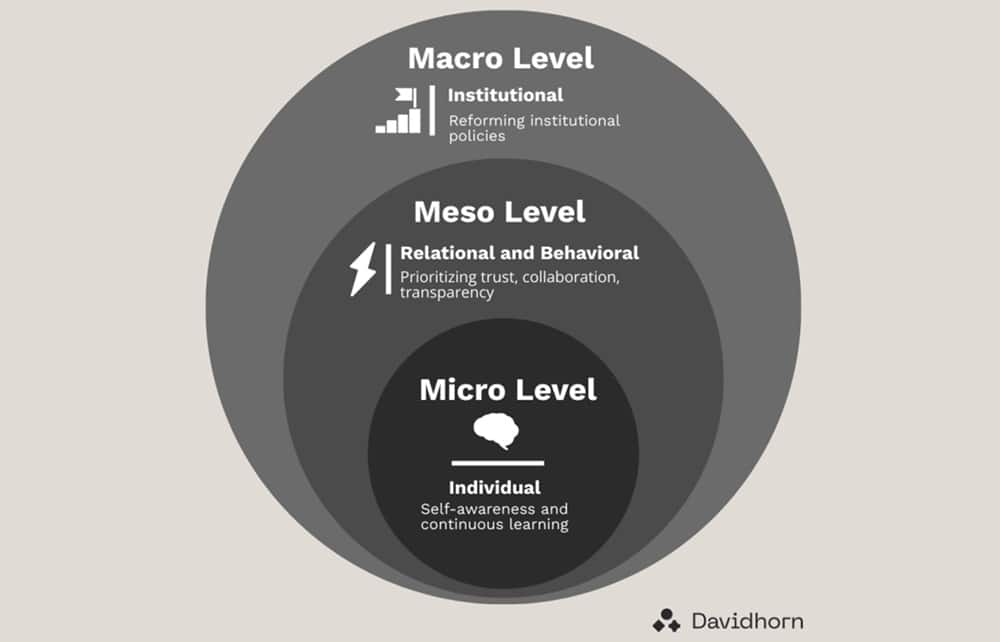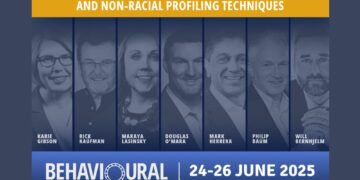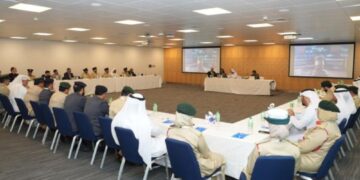Norway-based recording equipment specialist, Davidhorn, dives into a new report How to Foster Transformational Leadership produced by the UNDP ODC, which explores transformational leadership and its implications for global governance.
It emphasises the need for leadership that extends beyond immediate concerns, considering the broader impact of decisions across time and space. Transformational leadership is about “going to the roots of the issues, challenging fundamental assumptions, and proposing and embodying alternative futures”.
The report identifies challenges and necessary shifts in leadership at macro (institutional), meso (relational and behavioural), and micro (individual) levels, Davidhorn says. It highlights the importance of collaboration between private companies and organizations in fostering global transformational leadership, suggesting that such collaborations can drive significant, mutually beneficial changes. This involves rethinking leadership roles and structures to address global challenges more effectively.
Shifting the lens of transformational leadership to law enforcement, we can apply its principles across various levels of the sector. Davidhorn plays a crucial role in this transition, offering technology and training to address the unique challenges of law enforcement, enhancing both institutional practices and individual competencies for a more responsive and effective justice system:
What can be done at the institutional level
Leadership at different levels can drive transformations in law enforcement.
Challenges at the institutional level include structures and practices created back in time when the crime pattern and societal demands for inclusivity were different. Adapting to this insight could mean reforming institutional policies to be more inclusive and responsive to community needs.
At the institutional level, there’s an opportunity for law enforcement to lead in innovation and inclusivity. It may also involve modernising practices to keep pace with technological advancements and changing crime patterns. By implementing new technologies and methodologies, and by integrating diverse perspectives into policymaking, law enforcement agencies can become more agile and effective. This could lead to community-centric policing models.
Davidhorn delivers technology that supports investigative interviews. Our recording solutions simplify and make the interview process more effective. The integrity of the evidence captured by our solutions are particularly important with the increased access to deep fake and voice cloning technology. Implementing new methodologies require updated practices. Bringing the right mindset, processes, and procedures to the interview process is essential and can be ensured through our training program. Effective interviewing is crucial for law enforcement and in criminal investigations, with the quality of interviews significantly impacting the justice processes.
What can be done at the relational and behavioural level
The meso level presents a valuable chance for law enforcement to strengthen community relations and internal teamwork. By prioritizing trust, collaboration, and transparency, law enforcement can build a strong bond with the community and improve internal cohesion. Initiatives like community outreach programs and inter-departmental team-building exercises can be instrumental in achieving these goals. Implementing leadership frameworks and practices to change the mindsets across the sector play an important role in ensuring new processes are implemented and followed by all levels of the organisation to foster a culture of trust, collaboration, and open communication both within the organisation and with the public.
Davidhorn’s technology delivers evidential recording with high integrity. Recording of interviews creates behavioural change and can contribute to implementation of new practices. Reliable information from key individuals is indispensable, enhancing the value of other evidentiary materials. To facilitate the mindsets’ change and support building trust in communities, we also offer comprehensive interview training programs by world-renowned experts in suspect interviewing and engagements with vulnerable witnesses.
What can be done at the individual level
At the individual level, law enforcement officers have the potential for significant personal and professional growth. By fostering a culture of self-awareness and continuous learning, officers can develop into well-rounded, adaptable leaders. This can be encouraged through training programs, online courses, microlearning, mentorship opportunities, and a supportive environment. Self- and peer-to-peer evaluations are also strongly recommended by the UN Investigative Interviewing Manual and are an important step for personal growth and professional development.
The transparency that our recording solutions provide will be key in implementing new procedures and ensuring that culture changes stick across the organisation.
In summary, by embracing these challenges as opportunities for growth and development, law enforcement agencies can evolve into more dynamic, community-focused, and effective organisations – and we are here to help. Reach out to learn how.
You can download the UNDP OGC report on transformational leadership here.
For more Davidhorn news, click here






